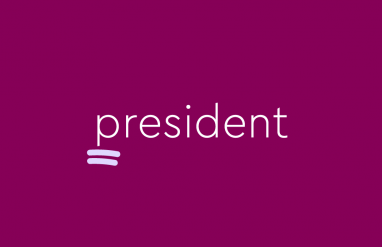Take a look at the following sentences: I am the greatest. Everybody loves me almost as much as I love myself. While we can’t say much for this writer’s humility, we do know, however, that this person knows how to use pronouns. And not just any pronouns. The pronouns they use are based on a first person point of view: they are describing the world as they see it through their own eyes. As you are about to learn, when we need to use the first person, nobody is better at it than me, myself, and I.
What is first person?
The first person is the point of view used by a writer or speaker when talking about the world as they see it. First person is used by someone when they want to reference themselves. In literature, the first person is used when a character is narrating their own story.
For example, a story might have a sentence that reads I searched for the pirate treasure. This sentence is written in the first person; it says that whoever is saying or writing this sentence is also the one who is doing the action it is referring to. Authors often use the first person to make fiction stories more immersive, as first person allows the main character to describe everything directly from their own point of view.
In everyday life, we use the first person all of the time to talk about ourselves and to tell others things that happened to us or things we plan to do.
What is a first-person pronoun?
A first-person pronoun is a pronoun that refers to the speaker or writer. Typically, a first-person pronoun doesn’t actually replace a noun and is understood to mean that a writer/speaker is referring to themself or to a group that includes themselves.
List of first-person pronouns
The most commonly used first-person pronouns include:
- I
- me
- we
- us
- mine
- ours
- myself
- ourselves
Each of the above words has specific reasons for its use:
- I and me are singular words that are used when a speaker/writer is referring only to themselves. I is a subject pronoun and me is an object pronoun. The word I is special in English because it is capitalized no matter where it appears in a sentence.
- We and us are plural words that are used when a speaker is referring to themselves as part of a group. We is a subject pronoun and us is an object pronoun.
- Mine and ours are possessive pronouns that are used to refer to possessions, origins, or other special relationships. Both of these words can be either singular or plural.
- Myself and ourselves are reflexive pronouns and intensive pronouns used by a writer/speaker to refer back to their own self as an individual or as part of a group. If used as a subject, myself is treated as singular and ourselves is treated as plural.
Examples of first-person pronouns
The following examples show how we use first-person pronouns in sentences. In each sentence, the first-person pronoun references the speaker/writer either alone or as part of a group.
- I was born in Switzerland.
- Chole met me at the mall.
- We will be at the beach tomorrow.
- Andre’s house is bigger than mine.
- I drew a picture of myself.
Explore even further the dynamic between and uses of subject and object pronouns.
Why and when to use first-person pronouns
There are several different reasons why someone might use first-person pronouns.
To sound natural
In everyday speech and writing, most people naturally want to use the first person when talking about themselves. It is often the least awkward way to refer to oneself and allows for smoother sentences that are easier to understand.
For example, if a person named Matthew was telling his friends about his vacation, he would most likely say:
- I went to the Bahamas.
When they hear this sentence, Matthew’s friends immediately know that Matthew is talking about himself. But what if Matthew did not use the first person and instead said:
- Matthew went to the Bahamas.
Now, Matthew’s friends are confused. Is Matthew talking about another person also named Matthew? To most English speakers, hearing someone refer to themselves in the third person sounds very odd.
To add a personal touch
Using the first person often gives humanity to speech or a piece of writing. For example, look at the following two sentences:
- People need to stop littering in the park.
- We need to stop littering in the park.
Although the difference is slight, the second sentence sounds more personal as the writer/speaker is including themselves as part of the group that needs to take action. A writer/speaker may decide to use the first person if they want to make their writing sound more personal or establish a closer relationship with their audience.
To provide an immersive point of view
In writing, the first person is often seen to be more immersive as the reader is viewing the action from the eyes of the main character as they read the story. Particularly in fiction, a first person point of view is helpful to make a story more exciting, more suspenseful, or more relatable. For this reason, an author may choose to use first-person pronouns over third person pronouns if they feel it is stylistically the best choice for the story they are writing.
First vs. second and third person pronouns
First person is one of three points of view. The other two are called second person and third person. The second person is used to refer to a person or people that the speaker/writer is addressing and uses pronouns that include you, yours, and yourself. The third person is used to refer to a person or people not including the speaker or the person or people they are addressing. Third person pronouns include he, him, his, she, her, hers, it, they, theirs, and them.
In general, a pronoun is chosen based on who is doing what in a sentence. For example:
- I am a firefighter. (The speaker is a firefighter.)
- You are a firefighter. (The person the speaker is talking to is a firefighter.)
- They are firefighters. (A group of people that doesn’t include the speaker nor their audience consists of firefighters.)
- I helped you. (The speaker helped the person they are talking to.)
- You helped him. (The person that the speaker is addressing helped a person that isn’t the speaker or the person being addressed.)
- They helped us. (A group of people that doesn’t include the speaker helped a group of people that includes the speaker.)
Let GrammarCoach™ help!
Are your pronouns correct? Are they consistent? You’ll never mistake pronouns again when you check your writing on our grammar tool: Thesaurus.com’s Grammar Coach™. This writing tool uses machine learning technology uniquely designed to catch grammar and spelling errors. Its Synonym Swap will find the best nouns, adjectives, and more to help say what you really mean, guiding you toward clearer, stronger, writing. Whether you’re writing in first, or third person, perfect grammar has never been easier.















